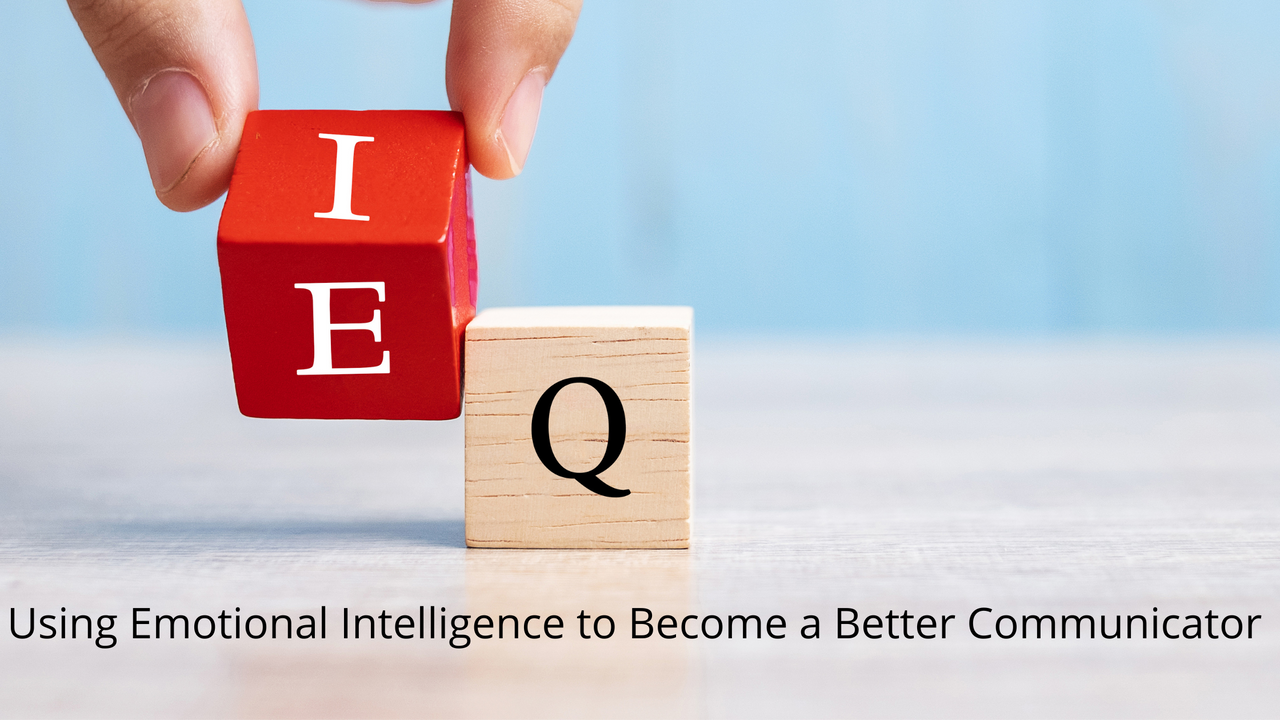Using Emotional Intelligence to Improve Communication Skills

Last month I gave a presentation for the 11th Annual Washington State Government Lean Transformation Conference. I have attended and/or spoken at all of the conferences, and they are always a highlight of my professional development journey.
The team of conference organizers did a remarkable job getting 30+ presenters prepared for the event to run smoothly. They did this in spite of people like me, who was well prepared and still missed hitting the "show your screen" on cue, and who got confused and thought the session was 45 min instead of an hour - even though I knew better.
Their professionalism and patience with me were appreciated. I didn't think it was my finest hour, but the evaluations they shared with me demonstrated it was a conference favorite for many, which is a good reminder that we are usually our own worst critic. Even when things seem bumpy, we still can be reaching the right people in the right way at the right time.
Here is a link to the video replay of the session: Using Emotional Intelligence to Improve Performance Management
Bonus: Click here to access all of the videos and materials from this year's conference.
If you prefer cliff notes, here are some of the highlights of my session on emotional intelligence.
Primary source used: Emotional Intelligence 2.0 by Bradbury & Greaves
Fun Fact: We experience 400 emotional experiences every day. However, only 36 percent of those tested can accurately identify their emotions as they happen. That means most of us aren't very self-aware of our emotional triggers throughout the day.
How we understand and respond to those triggers can make us a better communicators and leaders.
Many of us think we are self-aware and understand our own emotions and can recognize the emotions of others. The reality is that only 36 percent of us can accurately identify our emotions as they happen.
That leaves most of us - over 70% - with some work to do.
What is the definition of Emotional Intelligence (also known as EQ or EI)?
Emotional intelligence is your ability to recognize and understand emotions in yourself and others, and your ability to use this awareness to manage your behavior and relationships.
Interesting Fact: Emotional intelligence decreases with increased leadership titles. In other words, as we move higher in the workplace hierarchy, the less connected we become to understanding our emotions and the emotions of others.
Benefits of Improving Your EQ include:
Better Self-Awareness + Better Self-Management = Better Communication and Understanding:
- Better Communication: Understanding how others are feeling allows you to communicate with them better.
- Self-knowledge: Being more aware of what you are feeling allows you to understand yourself more deeply.
- Self-control: Being aware of your emotions allows you to develop your self-control abilities.
- Stress management/resilience: Managing your emotions effectively allows you to exert greater control in situations marked by stress or conflict.
The four components of emotional intelligence:
- Self-Awareness
- Self-Regulation | Managing Emotions
- Social Awareness
- Handling Relationships | Empathy
This presentation focuses on the first two: self-awareness and self-regulation (self-management)
1. Self-Awareness
The ability to recognize your emotions as they happen.
Understanding your general tendencies for responding to different people and situations
How to Improve Self Awareness:
- Focus on yourself. Be aware of when you feel angry, sad, happy, frustrated, etc.
- When you notice an emotion coming up, ask yourself why you feel that way. What happened earlier in the day that led to this feeling? How do you think others would react if they knew about this feeling?
Strategies:
1. Lean into discomfort
2. Feel emotions physically
3. Know who and what pushes your buttons
4. Pause and ask yourself why you do the things you do
5. Know your values
6. Seek feedback
7. Get to know yourself under stress
8. Practice Mindfulness
2. Self-Regulation | Management
Using awareness of your emotions to choose what you say and do in order to positively direct your behavior.
- Allows you to understand your own feelings and thoughts.
- Helps you identify what you need to change or improve upon.
Self-Management
- Manage and control feelings and thoughts in the moment and when triggered.
- People with strong emotional self-control stay composed even in stressful situations.
- For business and team leaders, this is a critically important competency to develop, since a team typically reflects the demeanor of its leader.
Strategies:
1. Breathe
2. Make your goals public
3. Count to 10
4. Smile and laugh more
5. Take control of your self-talk
6. Have healthy sleep hygiene
7. Learn a lesson from everyone you encounter
8. Accept that change is normal
How to Improve:
- Control your self-talk.
- Remind yourself you have a choice of how to respond to a situation.
Using EQ to Become a Better Communicator
- Pro-tip: Listen to Understand, Not Answer
- Build trust and rapport.
- Practice Regular Appreciation & Gratitude
How can you improve your appreciation skills?
Small things can make a big difference:
- Make positive Connections
- Communicate “I see You”
- Avoid distractions
- Use open body language
- Use eye contact
- Remember names
- Greet people (look up, smile)
- Apologize when appropriate
- Say “please” and “thank you”
And, finally, regular mindfulness exercises will help you build emotional intelligence.
As I shared in my final comments at the end of the session:
What strategies can you work on to become a better communication by improving your emotional intelligence???
Stay Connected
Please schedule a free 20-minute consultation with me. I’d love to chat with you about your own communication struggles and victories and answer any questions you have.


